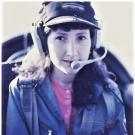Improvements in the efficiency of fossil fuel combustion, along with reductions in air pollutants like ultra-fine particulate matter, will be needed for energy generation and transportation. In addition, new energy sources will be required. Research in air pollution involves strong collaborations with colleagues in biology to help in understanding the health impacts of energy use and ensuing air pollutants, especially ultrafine particles. The Energy and Efficiency Institute works on energy efficiency in buildings and industrial processes, microscale flow and thermal transport and solar thermal energy. The Energy and Environment group looks at fossil fuel combustion as well as wind energy, hydrogen and fuel cell systems to answer these challenges. This field of study also includes air-breathing jet engines and rocket propulsion. Areas of current research include turbomachinery, computational fluid dynamics, open rotor, jet noise, turbine cooling, innovative gas-turbine cycles, rocket engine feed systems and cooling tubes, propeller design and centrifugal compressors. Wind power and renewable energy is another active research area, includes computational fluid dynamics, active flow control, surface roughness, wind tunnel tests and aeroacoustics.
Energy, Propulsion and Environment
Energy, Propulsion and Environment Faculty
Ben D. Shaw
Position Title
- Warren and Leta Giedt Endowed Professor and Chair
Ralph C. Aldredge
Position Title
- Professor and Associate Dean of Undergraduate Studies
Francis F. Assadian
Position Title
- Professor
Camli Badrya
Position Title
- Assistant Professor
Paul Erickson
Position Title
- Professor
Kelly Kissock
Position Title
- Chevron Endowed Chair in Energy Efficiency
Seongkyu Lee
Position Title
- Professor
Xinfan Lin
Position Title
- Associate Professor
Vinod Narayanan
Position Title
- Professor
Jae Wan Park
Position Title
- Professor
Nesrin Sarigul-Klijn
Position Title
- Professor
Anthony Wexler
Position Title
- Distinguished Professor













